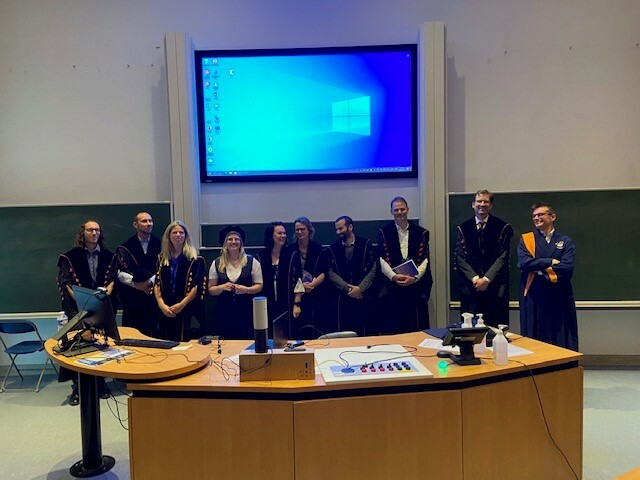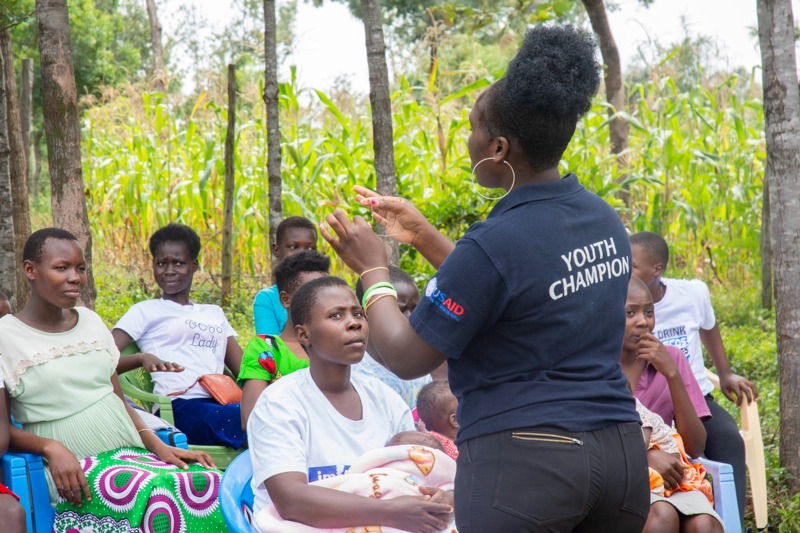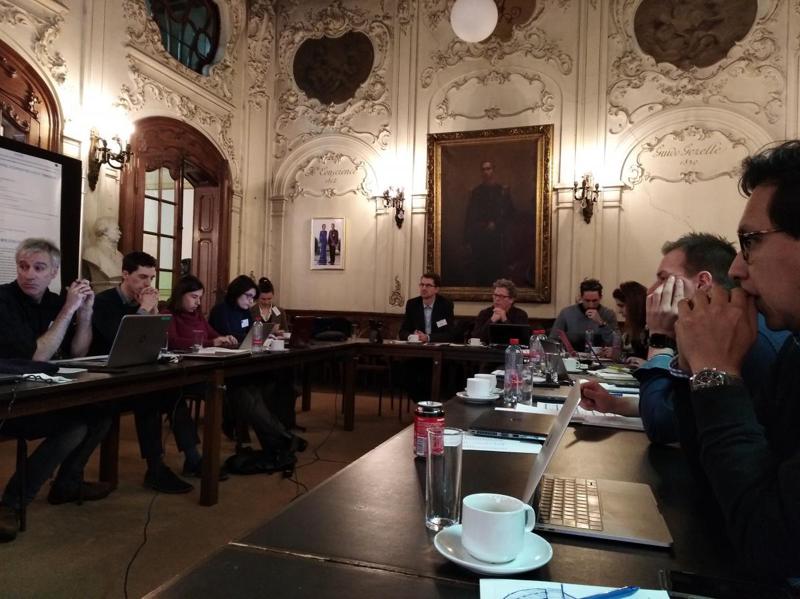PhD defense Lotte De Schrijver

The doctoral defense of LOTTE DE SCHRIJVER was scheduled on Tuesday 28/06 at 5 PM at the Faculty of Medicine and Health Sciences on the UZ campus in Ghent.
Dr. Lotte De Schrijver successfully defended her PhD entitled: 'Sexual violence and risk markers in othered sexual and migrant minorities in Belgium' at Ghent University. The supervisors are Prof. Ines Keygnaert, Prof. Tom Vanderbeken and Prof. Kristien Roelens.
Abstract
Previous international sexual violence research has shown that certain populations – such as migrants, applicants for international protection (AIPs), and refugees (MARs) and sexual and gender minorities (SGM) – are more at risk for sexual victimisation than others. From this evidence base, we learned that these population may have risk markers for sexual victimisation in common. In addition, the literature indicates that the increased risk for (sexual) violence exposure observed in minority groups may be explained by their exposure to stigma, prejudice, and discrimination and the ensuing othering-based stress. Objectives: The general objective of this study is to contribute first to a better understanding of the mechanisms, nature, prevalence, and impact of sexual victimisation in MARs, SGM and persons who identify as belonging to a minority group in Belgium and their associated help-seeking behaviour upon sexual victimisation. Second, this PhD research explores the relationship between sexual victimisation, belonging to one or more minority group(s) in Belgium, and othering-based stress. Methods: Based on the UN-MENAMAIS project, a mixed-methods methodology was applied. A critical interpretive synthesis was combined with a survey on sexual victimisation in a nationally representative sample (n = 4,632) and a randomly selected sample of applicants for international protection (AIPS) (n=62), and with in-depth interviews with 51 minority victims of sexual violence. In addition, we discussed our findings with professionals and policy makers during the Café Dialogue focus groups to formulate recommendations on prevention, care, policies, and research. Results: In this mixed-methods PhD research, we found that minority groups in Belgium (70%) report significantly higher prevalence of sexual victimisation than majority groups (62%). More specifically, the occurrence of sexual victimisation in AIPs (84%) and LGB+ (78%) persons is very high and they report specific help-seeking barriers that may be linked to experiencing othering-based stress. Furthermore, in this thesis we also found that the mere fact of identifying oneself as belonging to a minority group is insufficient to explain the observed differences in sexual violence exposure. Yet, identifying with multiple minority statuses did serve as a sexual victimisation risk marker. In addition, identifying as LGB+ was not found to be a predictor of sexual victimisation. However, besides the identified unique risk markers for sexual victimisation in othered minorities, the variability in observed victimisation between minority and majority groups was explained by sociodemographic characteristics, a higher numbers of sexual partners, mental health status, and coping mechanisms, which show different patterns in minorities and majorities, but are of high predictive value in victims of sexual violence regardless of minority status. Conclusion: We conclude from these findings that in order to understand the underlying mechanisms to the increased vulnerability for sexual victimisation of othered minorities, researchers and policy makers should focus on both the risk markers minorities have in common with each other and those they share with majorities as well as the risk markers that are unique to specific minority groups when designing research, prevention, and care strategies with the ultimate goal of reducing the high prevalence of sexual victimisation observed in minorities. Focusing on both common and specific vulnerabilities in research contributes to helping policy makers allocate resources to those interventions with the largest impact on societal level.
Full text: https://biblio.ugent.be/publication/8755876




